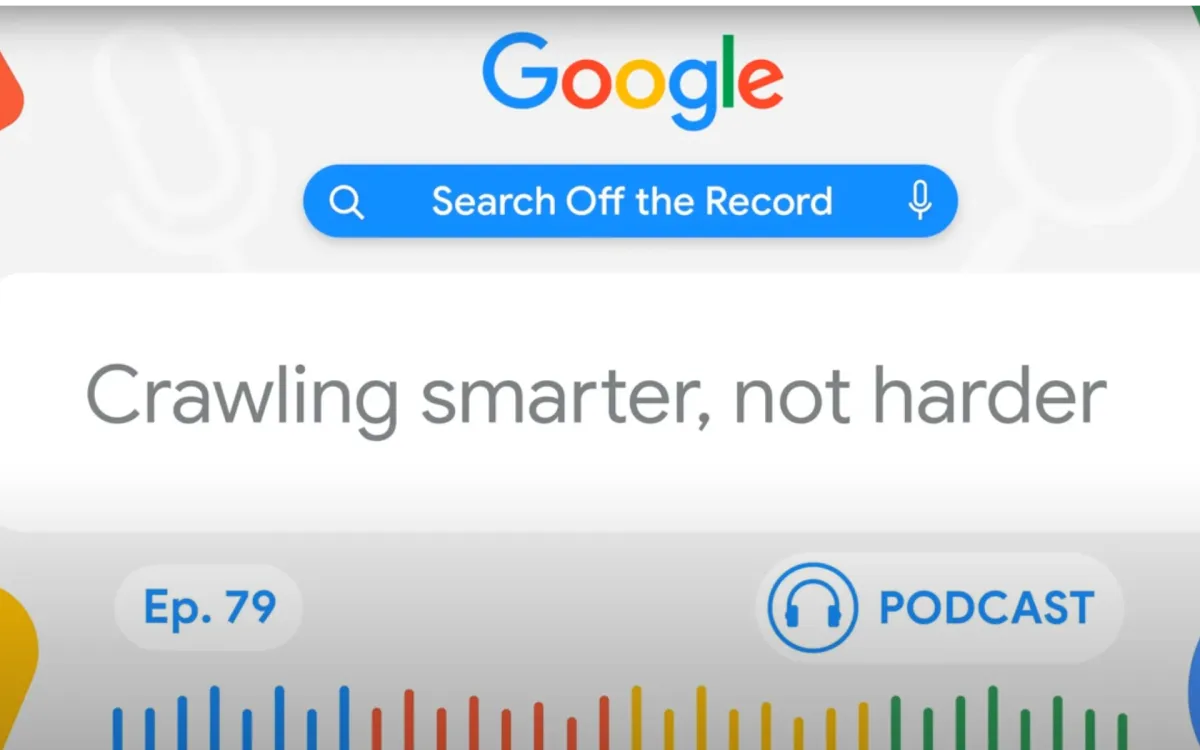
Google's Search Relations team last week explored the complexities of web crawling and potential improvements in a recent episode of their "Search Off the Record" podcast. The discussion, published on August 8, 2024, featured John Mueller, Lizzi Sassman, and Gary Illyes delving into misconceptions about crawl frequency, site quality, and the challenges search engines face when crawling the modern web.
The podcast, now in its 79th episode, addressed several key issues surrounding web crawling. According to Gary Illyes, a common misconception among website owners is that increased crawl frequency automatically indicates higher site quality. He emphasized that while higher quality sites may be crawled more frequently, other factors like server load and content updates also play significant roles in determining crawl rates.
John Mueller highlighted the importance of server response times, noting that slow servers can significantly impact crawling efficiency. He urged site owners to regularly check their Crawl Stats report in Google Search Console, explaining that response times of several seconds can drastically reduce the number of pages Google can crawl within a given timeframe.
The team discussed potential improvements in crawling efficiency, with Gary Illyes mentioning ongoing work on better URL parameter handling. This issue arises from the near-infinite variations of URLs that can be created by adding parameters, which can lead to excessive and unnecessary crawling. Illyes suggested that improved methods for identifying and handling these parameters could significantly reduce unnecessary crawl attempts.
An intriguing concept explored during the podcast was the possibility of more granular content updates. Currently, when a page changes, search engines typically need to re-crawl the entire page. The team speculated about future technologies that might allow servers to communicate only the changed portions of a page, potentially saving substantial bandwidth and processing power for both search engines and websites.
The discussion touched on the Internet Engineering Task Force (IETF) and a proposal for a new kind of chunked transfer, which might address some of these challenges. However, the team acknowledged that implementing such changes would be complex and require significant cooperation across the web ecosystem.
Lizzi Sassman raised questions about the use of hashtags (or anchors) in URLs, leading to a conversation about the challenges these present for crawlers. Gary Illyes explained that since hashtags are typically processed client-side, they can create complications for server-side crawling processes.
The podcast also addressed the role of hosting companies in resolving crawl-related issues. Illyes expressed frustration with situations where hosting providers mistakenly attribute crawling problems to Google when the issues actually lie within their own infrastructure. He advocated for better education and more proactive problem-solving from hosting companies to address these challenges.
Throughout the discussion, the team emphasized the need for balance between comprehensive crawling and resource efficiency. They noted that while Google has substantial resources for crawling, there's still a need to optimize the process to ensure the most valuable content is discovered and indexed efficiently.
The conversation highlighted the ongoing evolution of web technologies and the continuous efforts required to keep search engine crawling practices up to date. As websites become more complex and dynamic, the challenges of efficiently crawling and indexing content continue to grow.
This episode of "Search Off the Record" provides valuable insights for webmasters, SEO professionals, and anyone interested in the technical aspects of how search engines discover and process web content. It underscores the complexity of modern web crawling and the ongoing work to improve these processes.
For those interested in diving deeper into these topics, the full transcript of the podcast episode is available on the Google Search Central website. Additionally, listeners can find more episodes of "Search Off the Record" on various podcast platforms or through the Google Search Central YouTube channel.
Key takeaways from the podcast
Increased crawl frequency doesn't necessarily indicate higher site quality
Slow server response times can significantly impact crawling efficiency
Better URL parameter handling could reduce unnecessary crawling
Future technologies might allow for more granular content updates
Hashtags in URLs present challenges for server-side crawling
Hosting companies play a crucial role in resolving crawl-related issues
Balancing comprehensive crawling with resource efficiency remains a key challenge

